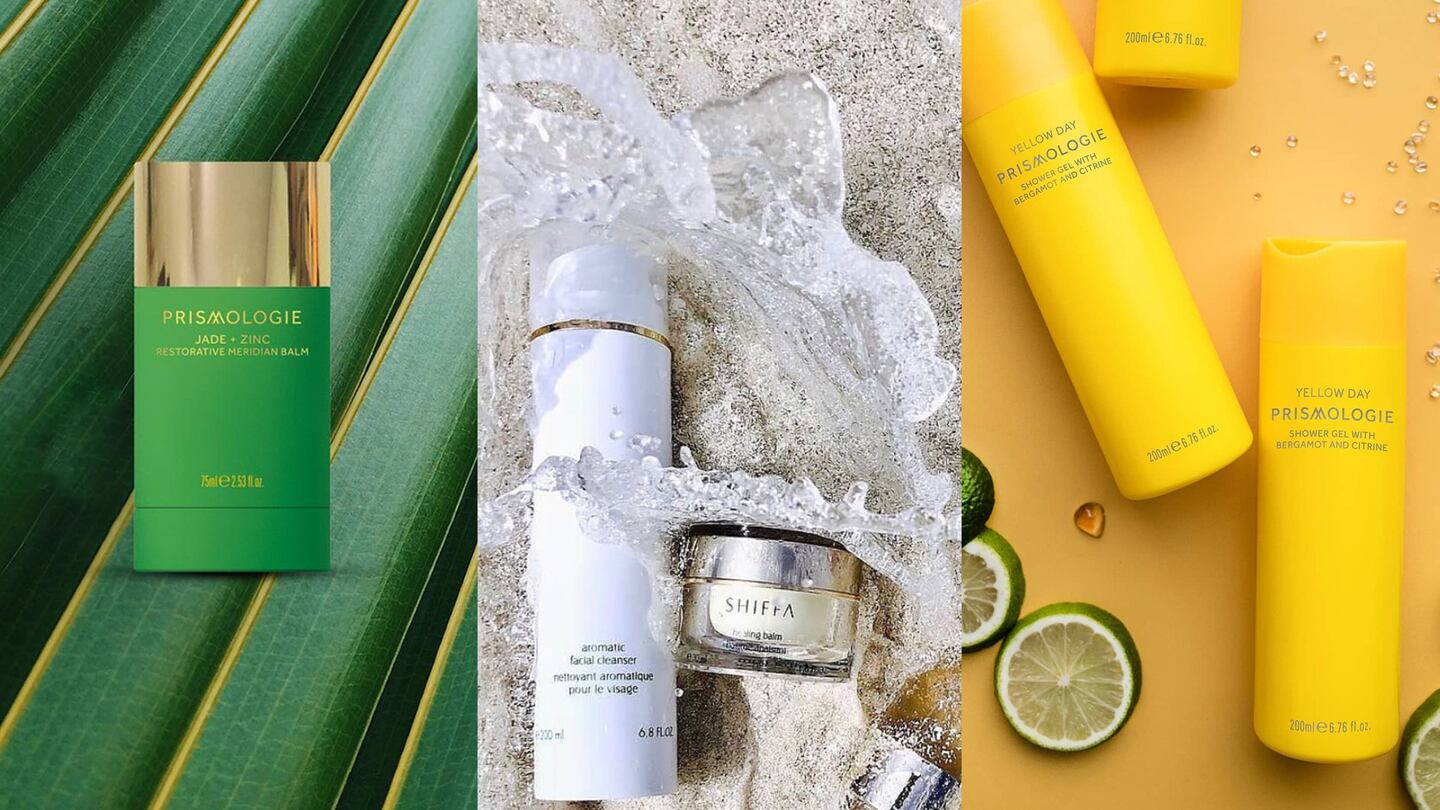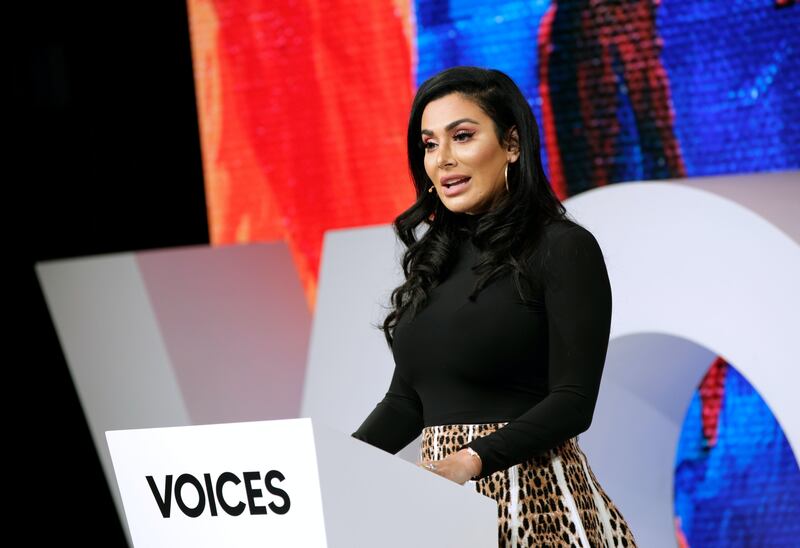
The Business of Fashion
Agenda-setting intelligence, analysis and advice for the global fashion community.

Agenda-setting intelligence, analysis and advice for the global fashion community.

DUBAI, United Arab Emirates — Last Year, Abu Dhabi-based newspaper The National claimed that Dubai was home to more plastic surgeons that any other place on earth. Even if this was a bit over the top, consider the fact that Lebanon, Iran and Egypt appeared on the International Society of Aesthetic Plastic Surgeons' top 24 countries in the world for cosmetic procedures for 2017.
It is clear many in the Middle East have no issues with going under the knife. But the stereotype of the “plastic fantastic” beauty regime may have reached its peak, as the region wakes up to clean beauty.
“Clean” itself isn’t a regulated classification, but denotes anything that has a trace of organic, natural pure or sustainable ingredients — all terms that are problematic on their own. Due to the lack of regulations governing how a brand uses the word, most believe that to call themselves “clean,” products must be mainly made of non-toxic and natural ingredients. And Arab brands are finally hopping on the bandwagon.
“Women celebrate beauty and femininity here, but there is definitely a shift in the way of thinking,” says Rosemin Madhavji, a renowned beauty influencer in the region for over a decade, and contributing editor for Harper's Bazaar Arabia.
ADVERTISEMENT
“They now want to enhance their features, not dramatically change them. With the local retailers in the region now making clean beauty more accessible, and there being a handful of good home-grown clean beauty brands, I see this movement [gaining] momentum," Madhavji tells BoF.
The beauty industry is big business in the Middle East — in 2017, Euromonitor International reported that in the GCC (Gulf Cooperation Council, which includes the United Arab Emirates (UAE), Saudi Arabia, Qatar, Kuwait, Oman and Bahrain) consumers spent $9.3 billion on beauty and personal care products — a figure expected to reach reach $47.5 billion by 2021.
Clean skincare will rise for sure in the region over time. The challenge is that, since we live in an Instagram age, people want instant beauty.
This makes the GCC the world’s fastest growing beauty market, and Dubai-based Aly Rahimtoola was one of the entrepreneurs that took note.
Rahimtoola saw a gap in the market for natural based beauty products but wanted his brand to reflect his Eastern roots. He chose to have Herbal Essentials manufactured in France, while utilising pure Himalayan Spring Water and active plant botanicals. With over 90 percent of ingredients of natural origin, their products are paraben, silicon and SLS free and are not tested on animals, meaning it can also wave the “ethical” brand banner.
“Clean skincare will rise for sure in the region over time. The challenge is that, since we live in an Instagram age, people want instant beauty,” says Rahimtoola. “What they need to appreciate is that optimal skin health and wellness comes from daily use of good quality products that are as clean as possible from the usual suspects.”
His hunch was on the money as Herbal Essentials has seen its UAE business grow around 11 percent year-on-year.
Even the region’s best-known beauty entrepreneur Huda Kattan, says that “when it comes to skincare, women in the region love natural ingredients — like using coconut oil to remove our makeup, castor oil for our brows, or using rose water as a toner.” These natural alternatives have been a part of Arab culture for generations.

Huda Kattan speaks on stage during BoF VOICES | Source: Getty Images for The Business of Fashion
ADVERTISEMENT
In April, the Middle East's first dedicated clean beauty site, Project Byouty will go live. One of the founders is Dubai-based Amy Wilkinson Lough, who has lived in the region for 15 years and has battled with endometriosis for over 20 years. When her father was diagnosed with cancer last year, she went on the hunt for products with non-toxic ingredients but found that deliveries from international e-tailers could take up to five weeks to arrive.
Project Byouty aims to fill this gap by working with over 70 brands that include Tata Harper, Mara and Lixir, and they deliver to all countries in the GCC excluding Qatar. According to Wilkinson Lough, social media has catalysed the Arab woman’s newfound interest in making mindful beauty choices.
“Our millennials are savvy, and rapidly aware of global leading brands. Quick fixes are out — it’s about education and prevention for the ladies of the GCC — [and] natural science-driven brands are our fastest growing segments currently.”
According to Project Byouty’s research, the clean beauty market regionally was estimated to be worth between $2.25 and $2.5 billion in 2017 and they expect this figure to grow by about 15 percent over the next five years.
Wilkinson Lough isn’t the only one enjoying the boom. As one of the first international clean beauty brands to launch in the Middle East, ethical French brand Nuxe is now available at about 70 retailers across the Middle East.
“We have to thank social media for this and the arrival of new local and international clean brands,” says Walid Khalife, general manager of Nuxe Middle East. “Consumers are able to see the effects of these products through social media.”
Khalife notes that aesthetic surgery is still popular in the region but is now frequently combined with a natural product routine.
Another foreign player in the region’s clean beauty sphere is Parisian retailer Sephora, which arrived in the Gulf in 2007. It now operates dozens of stores in the region from Mecca to Sharjah and beyond.
ADVERTISEMENT
“We see [the clean beauty] segment slowly growing in the region, compared to other markets,” says a spokesperson for Sephora Middle East. “However, we are seeing a growing interest in the category.” Which is why Sephora hosted a thematic in-store and online event called “Super Ingredients” focusing on organic and clean skincare products last year.
The Middle Eastern woman is willing to give the time necessary for beautification.
One of Sephora’s best-selling clean beauty brands is the home-grown Shiffa Beauty, launched by Dubai-based Emirati Dr Lamees Hamdan in 2009. Best-selling products include the “healing balm,” which Shiffa’s site describes as a “multi-functional blend of healing herbs.”
“Shiffa products are 80 percent or more organic,” Hamdan tells BoF. “Although at [time of launch ten years ago] the Middle East was not ready [for] an all-natural line, they did care very much about a product line that promised and delivered results.”
As an Arab woman, Hamdan understood how deeply grooming was entrenched in the region’s culture, and her local ingredients show it. Many of Shiffa’s products are inspired by Arab traditions and ingredients include Iranian rose and Egyptian jasmine.
“There has always been a big interest in taking care of yourself here. It is part of our tradition. Women are used to seeing their mothers and grandmothers looking after their skin, hair and body, like taking weekly Moroccan Hammams. The Middle Eastern woman is willing to give the time necessary for beautification.”
Shiffa's Rose Maroc Night Elixir | Source: Courtesy
Yet, she was also aware of how plastic aesthetic procedures were becoming more and more popular. “There is still too much of fillers and Botox going on, and it is starting at a younger age,” Hamdan says. Beauty insider Madhavji thinks the whole obsession with injectables started a decade ago and she notes that young girls are now looking for more natural alternatives.
Now that such procedures have become mainstays in the local beauty industry, their side effects are also becoming well known.
“What happens when you overfill, is that you actually end up looking older and puffier … there is a fine line between just right and too much,” explains Hamdan. Shiffa’s latest launch, entitled Amuse, hopes to combat this. Dissolvable patches are targeted to reduce smile lines, and work as a natural alternative to fillers.
As the brand’s products are available in the US through select Nordstom and Bloomingdales outlets, the product is gaining traction with influencers in the Middle East and beyond, with Shiffa's products appearing in Drew Barrymore, Huda and Mona Kattan's Instagram stories.
Another home-grown clean beauty brand that has gone global is Kuwait’s Prismologie. Founded by royals Sheikha Initisar Al Sabah and her mother Sheikha Fatima Al Sabah three years ago, the brand combines the science of colour with the healing property of stones. For example, one of their cult products is their Pink’O’Clock, a soothing hand cream that combines Rose Quartz and Arctic Rose extracts.
“The fact that Prismologie is manufactured in the UK and is a natural and ethical brand makes [consumers] love it even more,” says Sheikha Initisar.
Since first launching in Kuwait, Prismologie — which already counts Abu Dhabi’s Tyrano and Hong Kong’s Joyce Beauty among its stockists — has moved across the Gulf. According to Sheikha Initisar, sales have doubled every year since.
While the movement that these entrepreneurs are tapping into still lags behind the pace of change in the West, it’s clear that some beauty consumers in the Middle East are increasingly enthusiastic about "clean beauty."
“The market is [getting] tired of botox-looking polished, perfect, glamorous campaigns,” Wilkinson Lough says.
Disclosure: Sujata Assomull will collaborate on a future project with Shiffa’s founder but not in the beauty sector.
Related Articles:
[ Tracking the Rise of ‘Clean’ BeautyOpens in new window ]
[ Why Beauty Needs to Jump on the Wellness BoomOpens in new window ]
From analysis of the global fashion and beauty industries to career and personal advice, BoF’s founder and CEO, Imran Amed, will be answering your questions on Sunday, February 18, 2024 during London Fashion Week.
The State of Fashion 2024 breaks down the 10 themes that will define the industry in the year ahead.
Imran Amed reviews the most important fashion stories of the year and shares his predictions on what this means for the industry in 2024.
After three days of inspiring talks, guests closed out BoF’s gathering for big thinkers with a black tie gala followed by an intimate performance from Rita Ora — guest starring Billy Porter.